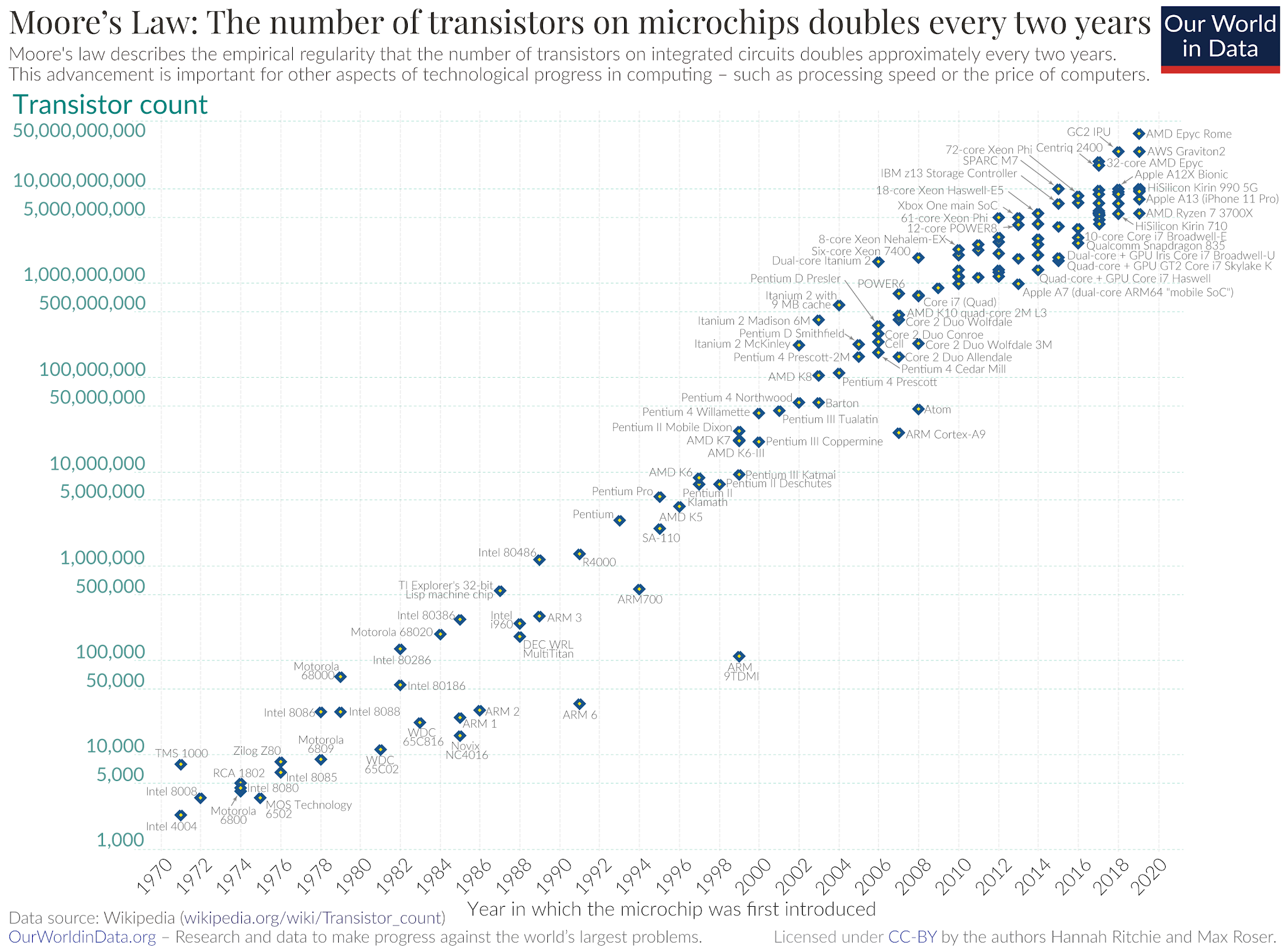Can't break this law

Forecasting and predicting in IT/Cyber can be difficult, but there is an aspect of this world that people consistently predict for with the goals being met. For those of you that care not to track silicon chip development and projections, Moore’s Law may be unfamiliar to you. Hoping in our time machine back to April 19th, 1965, in a section aptly called “The experts look ahead, Dr. Gordon Moore made a prediction that every two years the number of semiconductors that a measurable space can contain would double(Moore, 1965). It has been 56 years, and the law holds to this day. I personally made a prediction when pursuing my BS that Moore’s law would die due to eventually reaching a stage where the width of a wavelength of light used to cut the wafer would be larger than the cut needed. To me, what is most impressive is that not only did his prediction prove true in the short term, but has held up an insane amount of time when considering we are talking about IT development. IT changes f...
